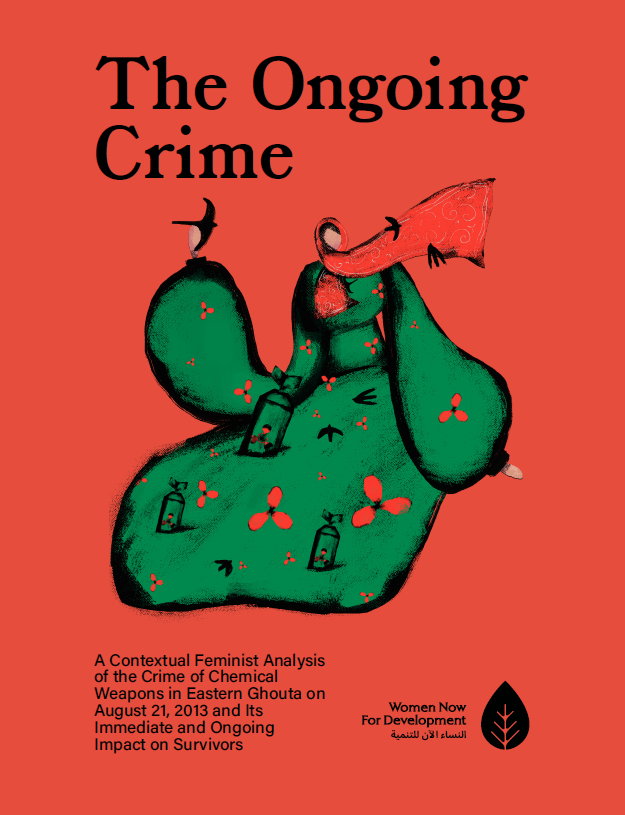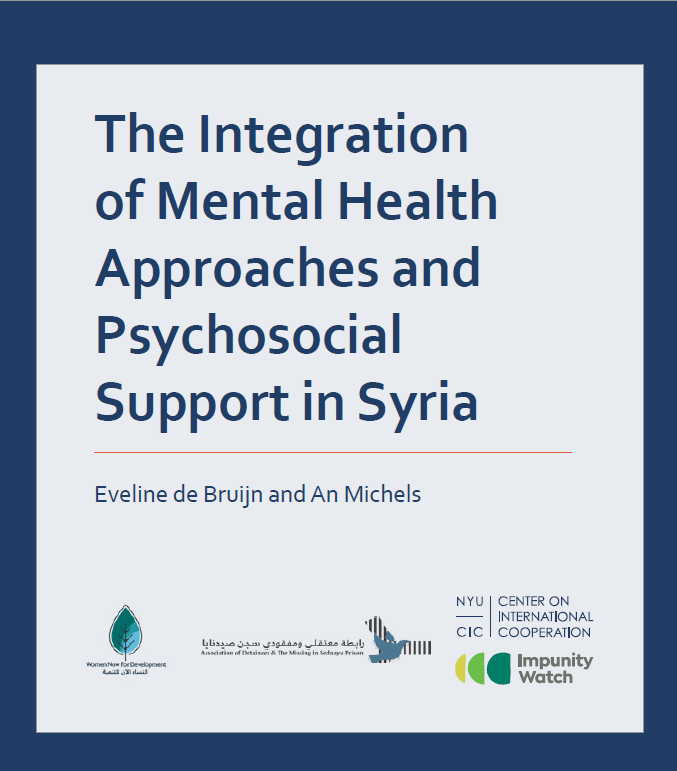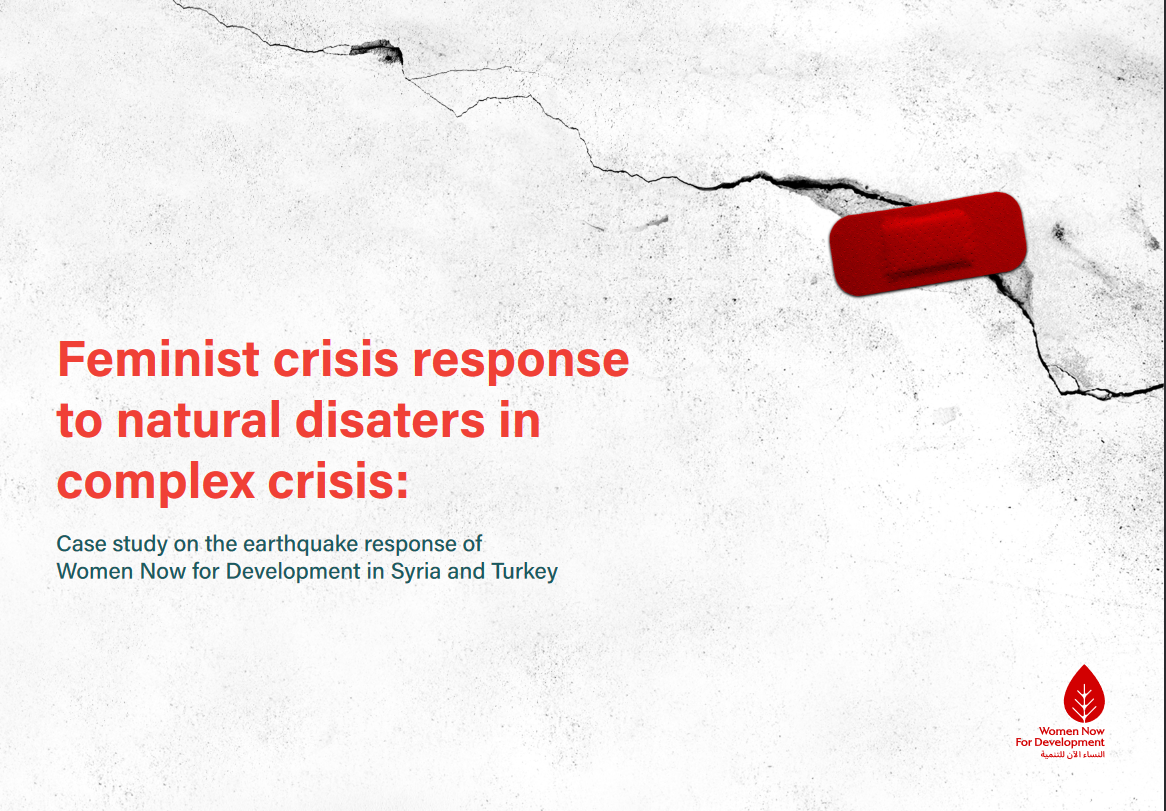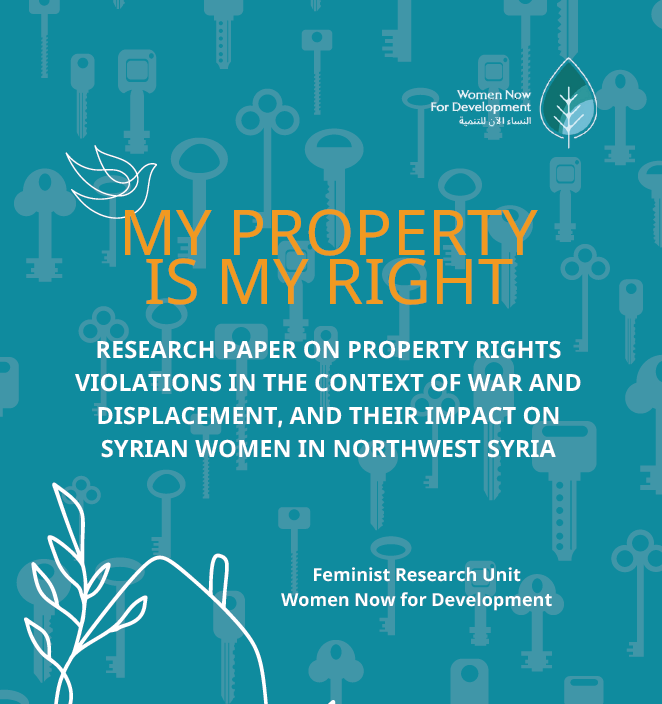In the early, h eady days of the Syrian revolution, opponents of Bashar al-Assad’s regime and advocates for human rights saw an opportunity. “Women were extremely active and present,” says writer and journalist Samar Yazbek. But as the war escalated, some of this hope was lost. “The war became extremely violent and women’s rights became a secondary issue. But despite the horrifying intensity of the war, there are still women activists working to create life and maintain a civil society, both within the heart of war and as refugees.”
eady days of the Syrian revolution, opponents of Bashar al-Assad’s regime and advocates for human rights saw an opportunity. “Women were extremely active and present,” says writer and journalist Samar Yazbek. But as the war escalated, some of this hope was lost. “The war became extremely violent and women’s rights became a secondary issue. But despite the horrifying intensity of the war, there are still women activists working to create life and maintain a civil society, both within the heart of war and as refugees.”
These activists are fighting to ensure that women have a place not just at the negotiating table, but in post-war Syria. As the chaos of war causes major social upheaval, these women are pushing for girls and women to be empowered, and to have equal access to education and representation – in keeping with the UN’s sustainable development goal 5, which points out that such changes benefit humanity at large.
In 2012, Yazbek won the Penn Pinter prize, a prestigious literary award. She used the money to start Women Now for Development, one of a number of organisations trying to challenge traditional patriarchal norms. Initially, the work revolved around helping women to support themselves financially. As violence intensified and the revolution became militarised, it adapted to protect women’s status and to support them through displacement. “I wanted to help build a democratic society,” says Yazbek. “It seems very far away now, but the ambition is to create pockets of civil society that can link up together to rebuild Syria after the war.”
Even in the relative normality of life before the war, it was clear that women were suffering from discrimination. In November 2011 a UNFPA report (pdf) found that one in three women in Syria experienced domestic violence. Several Syrian laws clearly disadvantage women; the penalty for “honour” killing is softer than for other murders, and there is no legislation that specifically prohibits gender discrimination. The Syrian family code limits a woman’s financial rights within marriage if she works outside the home without her husband’s consent. The Syrian regime has at times been cynical about its engagement with women’s rights, presenting itself as a safe option compared to the rank misogyny of extremist groups. This has often been hollow, for instance, using women as spokespeople while keeping them out of roles of real influence, and failing to take any action on discriminatory laws. And Yazbek points out that in areas of Syria held by Isis and other religious factions, the situation for women has drastically worsened. “We were already fighting against patriarchy and dictatorship before the war. Now we have to fight not only that, but also religious extremism.”
Women Now runs seven centres – two in Lebanon and five within Syria. Starting as a small support group for a few families in rebel-held territory in Syria, it has expanded to become a major women’s network. In addition to providing psychosocial support, skills training (in English and IT among others), and economic empowerment, it has a clear political goal: getting women’s voices heard – from the family setting to international peace talks. “We try to educate women about their rights, and spread awareness,” says Ola El-Jindi, a programme manager at the NGO. “This is the chance the war gave us – to empower women. If we didn’t use it well, it would be another disaster of war. We must use this opportunity to do better things.”
At the Women Now centre in Chtoura, a town in Lebanon’s Bekaa Valley, women and their children pass in and out all day; the centre acts as a safe space for women to express their ideas, engage with politics, and fight the loneliness that can be a central part of the refugee experience. In a room adjacent to the main office, two Syrian women, Noor and Hala, told me about their dreams. “I’d like to set up a business,” says Hala, who wears a full niqab. “My ideal would be designing evening gowns.”
“I want to get a job to send my kids to a good school,” says Noor, who is learning English at the centre. “Now I feel I have a purpose, I am not only serving my family and my kids, but also doing something for myself.”
There is clearly a large gulf between women living as refugees, in challenging economic situations, and the more privileged women already engaged in Syrian politics. “We aim to empower women in their daily lives and make them capable of representing themselves,” says El-Jindi. “It is hard to get women’s voices heard – there is a big gap between the women in Geneva and the women here at this centre. But our first goal is not only participating in international peace talks. It is to make women empowered enough to participate in general.”
In many places around the world – including Britain after World War Two – war can be a turning point for female empowerment. As men are absent, fighting or killed, women move out of their traditional roles. This is true inside Syria, where women are keeping society going in the midst of war – working as doctors, teachers, nurses and advocates. In places like Lebanon – where many refugees don’t have the legal right to stay – men are more likely to be stopped at checkpoints than women, meaning their movement is restricted.
“In Arab culture, the man is often the breadwinner, has the decision-making power in the family, and spends more time outside,” says Chiara Butti, Lebanon country director for the peace-building charity International Alert. “When they have to leave their country they become very frustrated sitting in the camp. For women, it’s often easier to move around. So they can work in the community, meet other women. After a few years, they are identified as influential people in the community – they’re able to bring people together and represent their community.”
Of course, refugee women face a whole host of gender-specific challenges – not least heightened risk sexual assault or exploitation, and caring responsibilities for their children. Engaging in international peace talks can seem a whole world away; some face resistance from male members of their families when they start to participate in politics.
But recent history shows that women’s presence at international talks is vital. In 2014, when Syrian women were still excluded from the process, the Women’s International League for Peace and Freedom (WILPF) held a conference in Sarajevo bringing together Syrian and Bosnian women. The Bosnian party shared their experiences of being left out from the 1995 Dayton peace negotiations, where no women were present at all. According to WILPF, the exclusion of women from Bosnia’s peace process “has had concrete consequences both for the society as a whole and also for women … and their ability to be recognised as agents of change in later processes.” This is not unique to Bosnia; in 2012, UN Women published a review (pdf) of 31 peace processes, showing that only 4% of peace agreements had women as signatories.
The top negotiating teams for both Syrian opposition and regime are entirely male – but in March 2016, a Syrian women’s advisory board attended Geneva talks for the first time. “All of us are women who regularly face a room full of men attempting to resolve a conflict fought mostly by men,” Marah Bukai, one of the committee members, wrote recently. “In our own ways, we persist in taking on a political role that many people in our society do not accept.”
Women Now wants to ensure that grassroots concerns are reflected too, and runs consulting sessions with women, supporting them to write recommendations and demands, which they then feedback to the opposition commission and the team of Staffan de Mistura, the UN envoy to Syria.
“There is nothing good about the war,” says El-Jindi. “Women are forced to relocate, and work as well as looking after their families. We have been forced to change. We didn’t choose it. But now, we are not going to go back to our previous position.”




